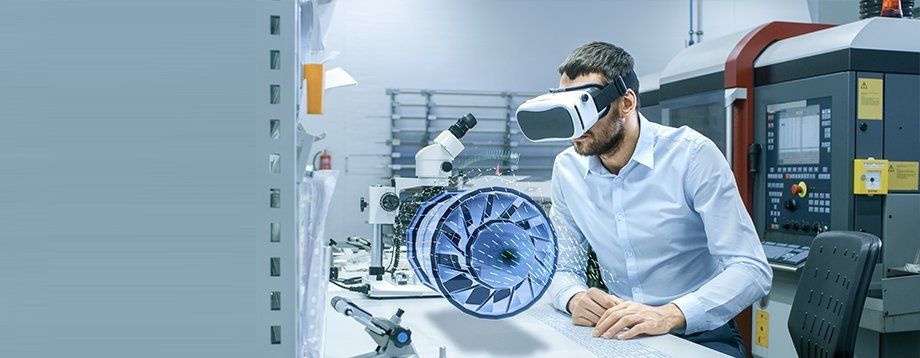The Impact of Virtual Reality on Business
Virtual Reality (VR) is helping businesses increase revenue, contain costs and improve efficiency. Organizations are beginning to evaluate how VR technology, which was originally commercialized for entertainment purposes, can impact their P&L. Since the emergence of VR over 40 years ago, the technology has expanded to include Augmented Reality (AR) and Mixed Reality (MR). VR, AR and MR provide businesses with different options for interacting with the virtual world and ultimately with improving the bottom line.
Virtual Reality
VR enables a user to assume a virtual persona within a virtual world.
Example Business Case: An automobile manufacturer is launching its new SUV next year. At a popular tradeshow, they want car enthusiasts and journalists to be able to experience the driver perspective of off-roading with the new SUV. Tradeshow attendees that visit the booth are given headsets that place them in the driver’s perspective as he navigates through a rugged terrain with ease.
Augmented Reality
AR enables a user to view virtual objects within their physical world.
Example Business Case: An interior designer is working with a prospective client on redesigning their workspace. To help the client visualize what the new environment will look like, the client opens an app on their phone that films their physical workspace and displays virtual furniture that’s built to scale as if it physically existed in the room.
Mixed Reality
MR enables a user to interact with virtual objects within their physical world.
Example Business Case: An aerospace manufacturer wins a new contract and hires several new employees to help fulfill the orders. The company is tasked with training the new hires so they can join the production team. The new hires are given headsets that place virtual 3-D parts within their physical workspace. The new hires can view the inner-workings of the parts, learn about the different elements and make alterations. MR technology can enable manufacturers to commit fewer people resources towards educating its new hires and provides the new hires with a virtual, hands-on training experience helping them learn faster.
written by:
Brendan Kelly
Brendan Kelly is a Business Alliance Manager focused on building partnerships with technology companies that can help The Walker Group’s clients increase efficiencies, reduce operating expenses and mitigate IT security risks. Prior to assuming the Business Alliance Manager role at Walker, Brendan spent 10+ years in new business sales and account management roles while working for both software and service providers.
WE ARE PROUD TO BE
More Recent News

This month's employee spotlight is shining on one of our Network Specialists; Javier! Always a bright spot in anyones day, Javier is a valued member of our team whose hard work and collaborative spirit do not go unnoticed. We’re grateful for the energy, care, and consistency that he has brought to this company for six years!

WHERE PURPOSE MEETS IMPACT We are excited to release our 2025 Impact Report , a look at how our social enterprise model is empowering the community, supporting our clients, and investing in our team. As a Perpetual Purpose Trust, we’re committed to proving that purpose-driven business can lead the way. Thank you to the people and partnerships that make it all possible.

We’re thrilled to shine this month’s employee spotlight on Patrick Burke , who was recently promoted to OnCall Supervisor ! Patrick has been an essential part of The Walker Group Help Desk team for the past three years, offering reliability and flexibility to the team all while elevating the level care given to our clients. This promotion is a well-earned milestone and a reflection of Patrick’s hard work, leadership, and dedication to supporting both our clients and his teammates. To celebrate, we sat down with him to learn more about life outside the office, what inspires him in his work, and what he enjoys most about being part of the ever-evolving world of IT. Meet Patrick!









